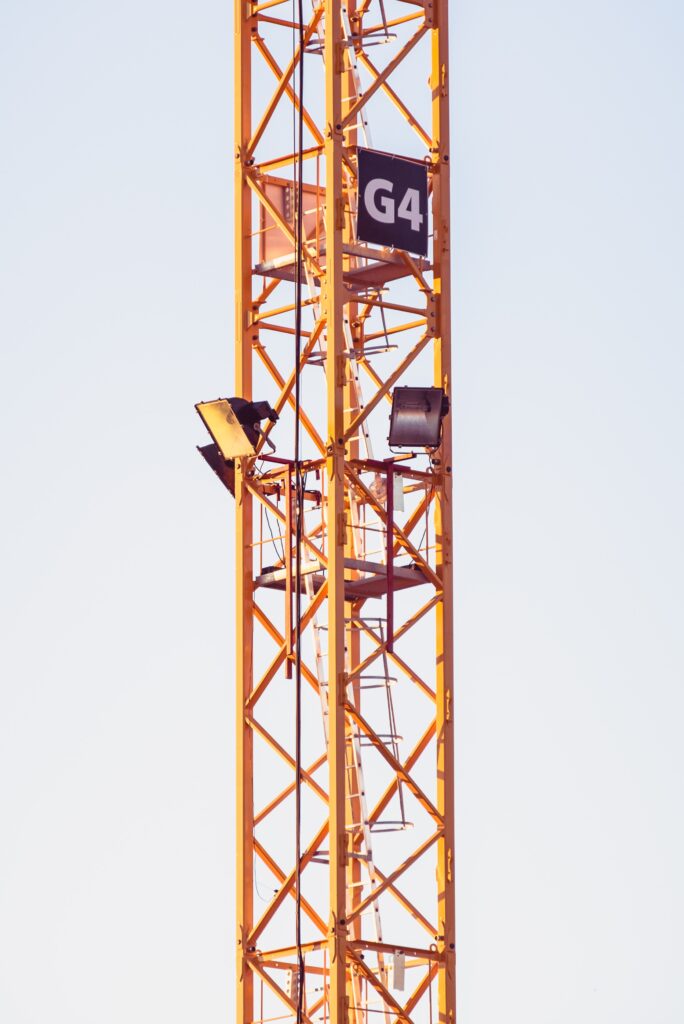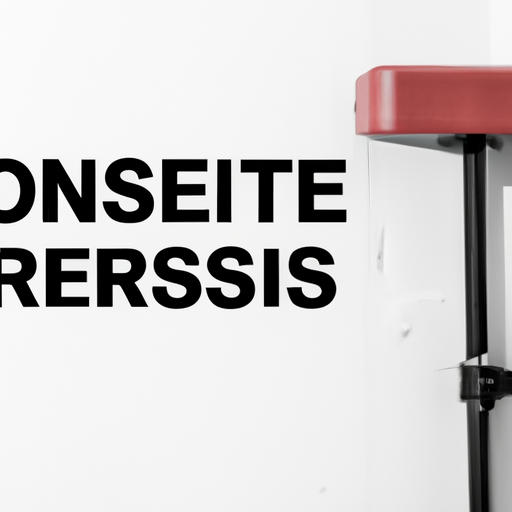
In the world of residential garages, the use of hoists can provide convenience and efficiency when it comes to lifting heavy objects or vehicles. However, before you embark on installing a hoist in your garage, it’s important to understand if there are any restrictions or regulations that may be in place. In this article, we will explore if there are any limitations or guidelines that homeowners need to be aware of when it comes to using hoists in their residential garages. Whether you’re a car enthusiast or simply looking for extra storage solutions, knowing the rules will ensure a smooth and safe experience in your garage.

Understanding Hoists: Definition and Use
Definition of a Hoist
A hoist refers to a mechanical device that is used to lift and lower heavy objects. It is typically comprised of a pulley system, ropes or chains, and a motorized mechanism that provides the lifting force. Hoists are designed to handle different weight capacities and come in various configurations such as electric, hydraulic, and manual.
Various Uses of Hoists
hoists have a wide range of applications across different industries, and their versatility makes them indispensable in many settings. In industrial settings, hoists are commonly used in construction sites, factories, and warehouses to lift heavy objects, machinery, and materials. Additionally, hoists are also widely used in the automotive industry for vehicle repairs and maintenance. In residential garages, hoists can be utilized to elevate cars for storage or perform maintenance tasks with ease and efficiency.
Legal Aspects of Installing Hoists in Residential Garages
Regulations at the Federal Level
When considering installing a hoist in a residential garage, it is important to understand the regulations set at the federal level. While there may not be specific regulations solely dedicated to hoists in residential garages, certain safety standards and regulations exist that apply to all mechanical equipment. These regulations ensure that the installation and use of hoists are done in a safe and responsible manner.
State-wide Restrictions and Norms
Apart from federal regulations, it is essential to be aware of any state-wide restrictions and norms regarding the installation of hoists in residential garages. Some states might have specific guidelines or requirements that need to be met before a hoist can be installed. These restrictions could include factors such as weight capacity limitations, minimum ceiling height requirements, and the need for professional installation or inspection.
Building Codes Respecting Hoist Installation
Building Code Requirements for a Garage Hoist
Building codes play a crucial role in ensuring the safety and integrity of structures, including residential garages. When it comes to hoist installation, building codes may specify certain requirements that need to be followed. These requirements could pertain to factors such as the structural capacity of the garage, proper anchorage and support for the hoist, and electrical wiring compliance to prevent any potential hazards.
Importance of Complying with Building Codes
Complying with building codes is not only a legal requirement but also an essential step to ensure the safety of both the individual and the property. Failure to adhere to building codes can result in accidents, damage to property, and potential legal consequences. It is highly recommended to consult with local building authorities or professionals to ensure that the hoist installation meets all necessary codes and regulations.
Ensuring Safe Use of Hoists
Guidelines for Safe Operation
Safe operation of hoists is paramount to prevent accidents and injuries. It is crucial to familiarize yourself with the manufacturer’s instructions and guidelines for the specific hoist being utilized. Some general guidelines for safe hoist operation include inspecting the hoist before each use, ensuring proper load weight capacity, using appropriate rigging equipment, and avoiding sudden movements or excessive loads.
Proper Maintenance for Safety
Regular maintenance is essential to ensure the safe operation of a hoist. This includes periodic inspection, lubrication of moving parts, and replacement of worn-out components. Following the recommended maintenance schedule provided by the manufacturer will help prolong the lifespan of the hoist and prevent any potential malfunctions or accidents. It is also advisable to have a qualified professional conduct routine inspections to identify any hidden issues.

Permits and Licenses for Hoist Installation
When is a Permit Required?
The requirement for a permit for hoist installation may vary depending on local regulations and building codes. In some areas, a permit may be required for any modifications or additions made to a residential property, including the installation of a hoist in a garage. It is essential to check with the local building department to determine whether a permit is necessary for the specific installation.
Process of Acquiring a Permit
The process of acquiring a permit for hoist installation typically involves submitting an application to the local building department. The application may require detailed information about the hoist, including its specifications, installation plans, and compliance with relevant codes. It is important to provide accurate information and address any specific requirements outlined by the building department. Once approved, the permit allows the installation to proceed lawfully.
Potential Legal Implications for Misuse or Non-Compliance
Legal Penalties for Non-Compliance
Failure to comply with regulations and requirements regarding hoist installation can result in legal penalties and consequences. These penalties may include fines, mandated corrections or modifications, and even possible legal action. It is important to ensure that the hoist installation meets all necessary standards to avoid potential legal issues.
Potential Lawsuits and Liabilities
Misuse or improper installation of the hoist can lead to accidents, injuries, or damage to property. In such cases, legal liabilities may arise, and individuals may face lawsuits seeking compensation for injuries or property damage. It is crucial to prioritize safety, strictly follow guidelines, and hire professionals for installation to minimize the risk of accidents and associated legal implications.

Insurance and Hoist Installations
How Hoist Installation Affects Home Insurance
Installing a hoist in a residential garage may impact the homeowner’s insurance coverage. Some insurance providers may require homeowners to disclose the presence of a hoist and provide details about its installation and safe operation. Failure to inform the insurance company about a hoist installation may potentially lead to denied claims or policy cancellations. It is essential to discuss the installation with the insurance provider to ensure adequate coverage.
Insurance Coverage for Hoist-Related Accidents
In the event of an accident or damage caused by the hoist, homeowners’ insurance may provide coverage depending on the policy terms and circumstances of the incident. However, it is crucial to review the policy coverage specifically related to hoist installations to ensure that any potential risks or damages are adequately covered. Discussing the installation with the insurance provider can help clarify the extent of coverage and provide peace of mind.
Professional Installation and Inspection of Hoists
Importance of Professional Installation
Professional installation of a hoist is highly recommended to ensure proper setup, adherence to building codes, and safe operation. Hoist installation requires specialized knowledge and experience to guarantee that the hoist is securely anchored, electrical connections are correctly made, and weight capacity is properly considered. Hiring professionals will not only help prevent accidents but also ensure the hoist functions optimally.
Regular Inspections and Their Importance
Regular inspections are vital to identify any potential issues or wear and tear that may affect the safe operation of the hoist. Professional inspectors have the expertise to uncover hidden problems, confirm compliance with regulations, and recommend any necessary maintenance or repairs. By conducting routine inspections, homeowners can maintain the safety and functionality of their hoist, minimizing the risk of accidents or malfunctions.

Guidelines for Hoist Usage in Garage Spaces
Effectively Utilizing the Garage Space
Hoists can significantly optimize the utilization of garage space by creating additional vertical storage. This allows homeowners to maximize floor space for parking vehicles or using the garage for other purposes. Organizing tools, equipment, and other items on shelving systems mounted high on the walls eliminates clutter and enhances accessibility. With proper planning, hoists can help transform a garage into a versatile and efficient space.
Limitations and Restrictions for Space Usage
While hoists can be a great addition to a residential garage, it is essential to consider the limitations and restrictions that may affect space usage. Factors such as ceiling height, weight capacity, and available clearance when the hoist is in use need to be taken into account. It is crucial to plan and organize the space effectively to accommodate the hoist and ensure its functionality without compromising on the garage’s overall purpose.
The Future of Hoists in Residential Garages
Emerging Regulations and Standards
As technology evolves and safety standards are updated, it is possible that regulations and standards specific to hoists in residential garages may emerge. These regulations may focus on enhancing safety, improving energy efficiency, or accommodating advancements in hoist technology. Staying informed about any changes or emerging regulations in the industry will ensure that homeowners are well-prepared for future requirements.
Technological Innovations and Their Potential Impact
Technological advancements have the potential to revolutionize hoist installations in residential garages. Automation, remote control capabilities, and enhanced safety features are some of the areas that are likely to see advancements. These innovations can increase convenience, improve efficiency, and further enhance safety protocols. By keeping track of emerging technologies, homeowners can make informed decisions when considering a hoist installation in the future.
In conclusion, hoists in residential garages can provide numerous benefits, but it is crucial to understand and comply with the legal aspects surrounding their installation and use. Familiarizing oneself with federal and state regulations, building codes, and proper maintenance guidelines is essential to ensure a safe and compliant hoist installation. Professional installation, regular inspections, and following safety guidelines are key steps in maintaining a safe and functional hoist. By staying informed about insurance coverage and potential legal implications, homeowners can protect both themselves and their property. Looking ahead, advancements in regulations and technological innovations will continue to shape the future of hoists in residential garages, making them even more efficient and user-friendly.










